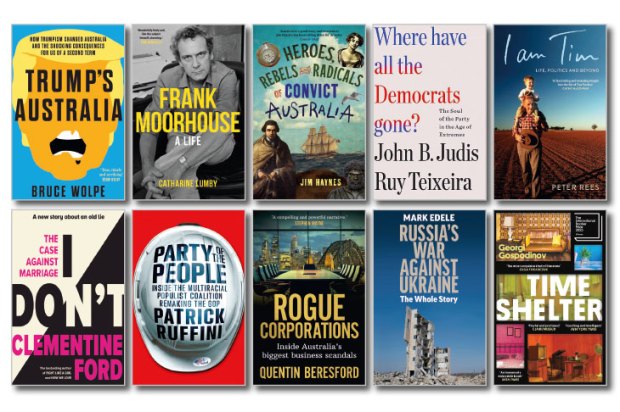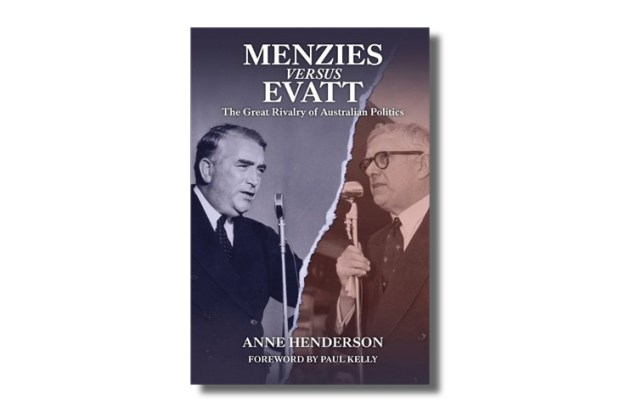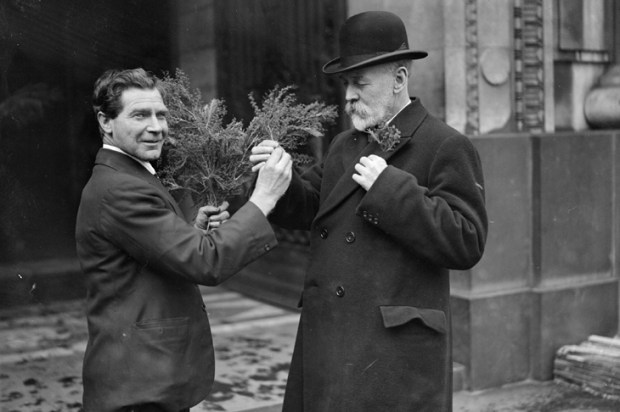Not Dead Yet: Labor’s Post-Left Future
By Mark Latham
Black Inc Books, $19.95, pp 99
ISBN 9781863955973
This book, by former Labor leader Mark Latham, is schizophrenic. Although not very comprehensible as a blueprint for the future, the first half of it has many eminently sensible suggestions which either major party could well adopt.
It appears to owe much of its economics to Kevin Rudd’s very special bête noire, Friedrich von Hayek, and many of its passages could be seen in a paper of the Austrian or Chicago Schools of economic thought — or the Bert Kelly Society or the Institute of Public Affairs — without evoking surprise. Some passages seem to come straight from Bert Kelly or John Hyde.
Latham’s attack on various federal governments’ featherbedding of the car industry, to take one example, is impeccably ‘dry’.
He writes: ‘The problem, as in so many areas, is rent-seeking trade unionism. [Labor’s] only answer is a throwback to McEwenism: preferment, protectionism and subsidisation.’ Many of his statements could be taken up by the Liberal party in the election campaign, and aimed at all major parties as well. ‘The spread of globalisation has only made McEwenism a bigger mug’s game.’
There are numerous very sensible passages like this, mainly at the beginning of the book: ‘Markets are supposed to foster a competitive struggle among suppliers. Yet in the 1950s, under the Country party leader John McEwen, selected industries were afforded tariff protection and subsidisation. Large parts of the Labor movement supported this policy, an accommodation between the captains of industry and trade unionism.’
But then — and this too will not surprise anyone who has followed Latham’s writing — the book drops into wild toxic raving, powered apparently by a blind, insensate hatred of an ill-defined ‘Right’, and carried along on a tide of insults and abuse. Writers for the Murdoch press are particularly loathed and animalised.
Ordinary truth seems ignored: Rebecca Weisser, of the Australian, is described as a ‘cut and paste compiler’. In fact she is the features or opinion editor, responsible for commissioning and accepting both freelance and in-house features.
Gerard Henderson, another member of the ‘authoritarian Right’, also leads a ‘narrow, miserable existence’. In fact Henderson’s Media Watchdog specialises in recording mistakes in predominantly left-wing media: a fairly transparent occupation. However he seldom mentions Latham’s name without also mentioning the enormous, index-linked pension which Latham draws for minimal Parliamentary service.
Tony Abbott’s alleged misogyny is brought up, without the slightest evidence, as well as totally mystifying passages such as, ‘How can a true conservative be unpopular with women?’ The idea Abbott is unpopular with women is backed by no evidence. As far as divorces go, the score is Latham 1, Abbott 0.
Some of Latham’s own descriptions of women are unprintable here, putting him in the Slipper league. This is a feature of much of his writing.
We are told: ‘The Liberals have breached convention before. Most notably in the dismissal of the Whitlam government…’ The dismissal was unusual, but no one with legal training, including Whitlam himself, has been able to argue it was illegal, and Abbott, then aged 18, did not enter Parliament until 1994.
‘When Abbott breaks a convention, it stays broken,’ we are told. Would that be like a taxi driver’s arms, Mr Latham? Abbott has also, he claims, ‘hunted down dissenting points of view’. This is rich considering Latham’s own obsession with images of violence, sex-scatology, treachery and boasts of his power to hate. His brief time in Parliament (never a minister), his landslide rejection by the electorate and his post-parliamentary experience seem not to have brought him self-knowledge or powers of self-control. It seems unbelievable that the man who wrote these later passages could have also written some of the eminently sensible ones at the beginning of the book.
The Australian Press Council is praised as ‘the body funded by Australia’s newspapers under self-regulatory provisions’, which sounds like a desirable step towards that Light on the Hill of government control for those papers that don’t play along. It seems it should be used against Latham’s enemies, and the fact that Andrew Bolt has criticised it is ‘an act of stunning arrogance’. Bolt had also allegedly claimed that it was ‘pushing a political agenda on to journalists’, ‘abusing its power’ and ‘punishing conservatives’. I don’t know how things are now, but some years ago a journalist friend of mine (working as it happened as a token conservative for Fairfax), fell afoul of the APC. I followed the matter to its end and came to the conclusion that APC members at that time knew as much about natural justice, double jeopardy and the presumption of innocence as your average feathered frog. In any case, the APC was set up reluctantly to stop Whitlam doing something worse.
Weirdness abounds. The man who took schoolboy dirt to a new level in Australian politics (‘hanging out the backside of the Queen’) wonders sadly about the quality of public debate. He claims Keynesian economics had a beneficial effect during the Great Depression. In fact it is widely agreed that Keynesianism prolonged it, especially in the US.
Mocking and sneering at political opponents such as Tony Staley, over being desperately injured, permanently crippled and nearly killed in a car crash (can one see Curtin or Chifley doing this?), suggests Latham (and Paul Keating too, with whom he shared this practice), doesn’t understand ordinary Australians either, or that many find such behaviour disgusting. Some still respect women for that matter, and dislike Latham referring to them with foul terminology.
It is amazing that this man, like Dr J.F. Cairns, came within measurable distance of being Prime Minister. It reminds us that Australia has certainly been lucky in dodging many, if not all, the bullets aimed it
Got something to add? Join the discussion and comment below.
Get 10 issues for just $10
Subscribe to The Spectator Australia today for the next 10 magazine issues, plus full online access, for just $10.













Comments
Don't miss out
Join the conversation with other Spectator Australia readers. Subscribe to leave a comment.
SUBSCRIBEAlready a subscriber? Log in